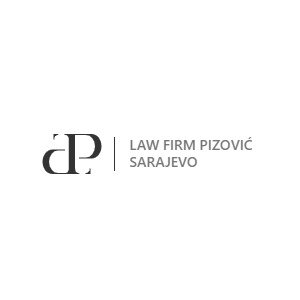Best Wrongful Termination Lawyers in Sarajevo
Share your needs with us, get contacted by law firms.
Free. Takes 2 min.
List of the best lawyers in Sarajevo, Bosnia and Herzegovina
About Wrongful Termination Law in Sarajevo, Bosnia and Herzegovina
Wrongful termination occurs when an employee's contract is ended by the employer in violation of the law or terms agreed upon in the employment contract. In Sarajevo, Bosnia and Herzegovina, wrongful termination encompasses scenarios where an employee is dismissed without just cause, without due process, or in violation of anti-discrimination laws. The legal framework is designed to protect employees against unfair dismissal and ensure employers have just and lawful grounds for termination. Understanding these laws is crucial in navigating any disputes that arise from employment termination.
Why You May Need a Lawyer
There are several situations where you might require legal assistance for wrongful termination:
- Your employment was terminated without a legitimate reason or due process.
- You suspect your dismissal was based on discrimination due to your race, gender, age, or other protected characteristics.
- You were terminated in retaliation for whistleblowing or reporting illegal activities at your workplace.
- Your termination breached the terms and conditions specified in your contract.
- You need to negotiate a severance package and require legal guidance to ensure fairness.
In these cases, a lawyer can provide the necessary legal advice, help you understand your rights, and represent you in proceedings when seeking reinstatement or compensation.
Local Laws Overview
In Bosnia and Herzegovina, employment law is primarily governed by the Labor Law of the Federation of Bosnia and Herzegovina. Some key aspects relevant to wrongful termination include:
- Just Cause Requirement: Employers must present a valid and legally recognized reason for termination.
- Notice Periods: The law stipulates specific notice periods before termination, which vary based on the duration of employment.
- Anti-Discrimination Protections: Employees are protected from dismissal based on race, gender, religion, national origin, political opinion, or other protected grounds.
- Procedural Requirements: Employers must follow a fair procedure, which includes documenting reasons for termination and providing the employee an opportunity to respond.
- Appeals and Remedies: Wrongfully terminated employees have the right to appeal through labor courts and may seek reinstatement or financial compensation.
Frequently Asked Questions
1. What constitutes wrongful termination in Sarajevo?
Wrongful termination occurs when an employer violates labor laws or contractual terms when dismissing an employee, including dismissals based on discrimination, retaliation, or lack of reasonable notice.
2. How can I prove my termination was wrongful?
Evidence such as written communication, lack of documented reasons for dismissal, and witness testimony may support claims of wrongful termination. Legal assistance can aid in gathering and presenting this evidence.
3. Can I be dismissed without notice?
Generally, dismissals must comply with statutory notice periods unless the termination is for severe misconduct. Employers must provide clear justification for such immediate dismissals.
4. What should I do immediately after being wrongfully terminated?
Document everything related to your dismissal, request written reasons for termination, and seek legal advice promptly to evaluate your options and preserve your rights.
5. What remedies are available for wrongful termination?
Possible remedies include financial compensation, reinstatement to your previous position, or an equitable settlement negotiated through mediation or court proceedings.
6. How long do I have to file a complaint?
Timelines for filing a wrongful termination claim can vary, but it's generally advisable to act quickly. Consult with a lawyer to understand specific deadlines applicable to your case.
7. Are there any exceptions to the protections against wrongful termination?
Certain positions, such as senior-level executive roles, may have different contractual terms, which can affect termination rights. However, anti-discrimination protections still apply.
8. Can a lawyer help me negotiate a severance package?
Yes, a lawyer experienced in employment law can help negotiate the terms of your severance package to ensure fairness and maximize your benefits.
9. Can employers retaliate if I file a wrongful termination claim?
Retaliation for filing a claim is illegal and can result in further legal consequences for the employer. Employees are protected against such actions.
10. Is mediation a viable option for resolving wrongful termination disputes?
Mediation can be an effective way to resolve disputes amicably, often faster and at a lower cost than court proceedings, and with the assistance of a legal professional to ensure fair outcomes.
Additional Resources
Here are some resources and organizations that can assist with wrongful termination issues:
- Federal Ministry of Labor and Social Policy: Provides guidance on labor rights and obligations.
- Trade Unions: Offer support and legal resources for members facing employment disputes.
- Local Legal Aid Clinics: Provide free or low-cost legal assistance to individuals seeking help with employment law issues.
- Human Rights Ombudsman of Bosnia and Herzegovina: Can address violations of labor rights within its mandate.
Next Steps
If you believe you have been wrongfully terminated, consider taking the following steps:
- Collect and document any evidence related to your dismissal, including emails, letters, or witness contacts.
- Consult with a qualified lawyer specializing in employment law to assess your case and provide tailored advice.
- Explore alternative dispute resolution methods such as mediation before proceeding to court litigation.
- Be aware of and adhere to any statutory deadlines for filing claims or appeals.
- Stay informed about your rights and responsibilities as an employee under local labor laws.
Taking timely legal action and seeking professional advice can significantly impact the outcome of your case and help protect your rights effectively.
Lawzana helps you find the best lawyers and law firms in Sarajevo through a curated and pre-screened list of qualified legal professionals. Our platform offers rankings and detailed profiles of attorneys and law firms, allowing you to compare based on practice areas, including Wrongful Termination, experience, and client feedback.
Each profile includes a description of the firm's areas of practice, client reviews, team members and partners, year of establishment, spoken languages, office locations, contact information, social media presence, and any published articles or resources. Most firms on our platform speak English and are experienced in both local and international legal matters.
Get a quote from top-rated law firms in Sarajevo, Bosnia and Herzegovina — quickly, securely, and without unnecessary hassle.
Disclaimer:
The information provided on this page is for general informational purposes only and does not constitute legal advice. While we strive to ensure the accuracy and relevance of the content, legal information may change over time, and interpretations of the law can vary. You should always consult with a qualified legal professional for advice specific to your situation.
We disclaim all liability for actions taken or not taken based on the content of this page. If you believe any information is incorrect or outdated, please contact us, and we will review and update it where appropriate.











